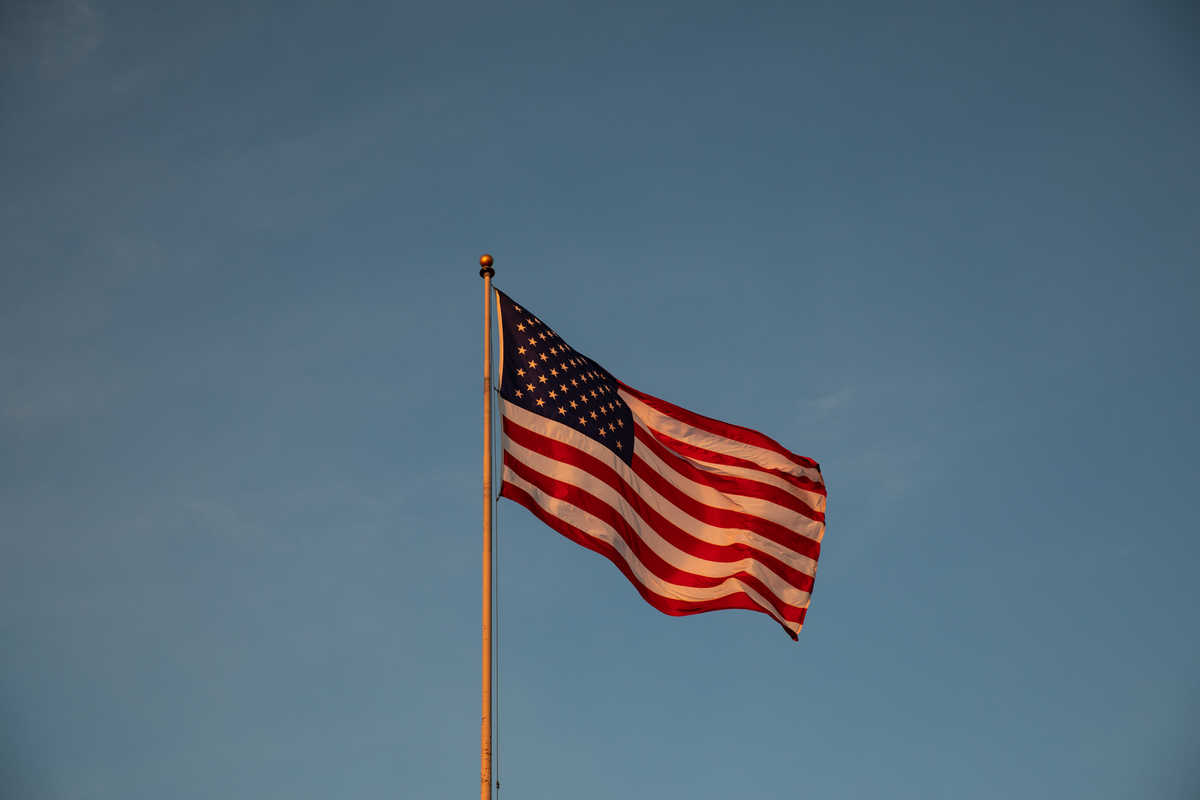In the wake of the violent and deadly Jan. 6 attack on the U. S. Capitol, a recent interdisciplinary panel of St. Thomas experts, including historians as well as legal, media and political science experts, agreed that American democracy is in trouble.
“We need to be on guard that our democracy is not in a healthy place right now,” said Renee Buhr, political science professor and director of international studies. “We need to shore it up, or it's going to get worse.”
The congressional ceremony to certify presidential election results is so routine that it usually goes unnoticed, but on Jan. 6, it was interrupted as a violent mob sieged the Capitol. Buhr said, while this explicit refusal to abide by the outcome of an election alone signaled instability, the U.S. has long exhibited many warning signs of a backsliding democracy, putting the nation in the company of countries like Turkey, Hungary and Poland.
Associate professor of history Zsolt Nagy, Hungarian immigrant, said he grew up looking to America not just as an undeniable influence in consumer and pop culture, but more importantly, as a beacon of democracy. That standing, Nagy said, has been damaged.
“The events of Jan. 6, and the events that led up to it, undermine the United States’ soft power and its ability to defend and promote freedom and democracy,” Nagy
The insurrection elicited responses from China, Russia and Iran, Nagy said, marking “the failure of Western democracy.” Nagy said Russian leaders proclaimed: “The celebration of democracy is over. America is no longer charting the course, and therefore has lost all its rights to set it.”
An American identity crisis
Meanwhile, Americans themselves are also grappling with an identity crisis, said School of Law Dean and Mengler Chair in Law Rob Vischer. He said the last two months have been a powerful reminder about the extent to which the American political discourse has become more about identity than ideas.
“On hot-button issues, people aren’t thinking about the arguments, they’re thinking about which side they’re on,” Vischer said. “[An issue] isn’t about what you know, it’s about who you are.”
After the attack, many commentators and political leaders, including President-elect Joe Biden, attempted to define that identity, declaring, “This is not who we are.” However, David Williard, associate professor of history, argued that statement shields Americans from responsibility for a long history of political violence and passive acceptance.
At the same time, Williard said simply saying what happened on Jan. 6 is “who we are,” robs Americans of their agency.
“Both are dead ends that can yield no transformation,” Williard said. “I would ask that we … say finally with conviction in our sentiments, in our laws, our institutions and our practices, never again.”
Assistant Professor of Political Science and Director of the Legal Studies and Legal Skills programs Caleb Goltz said the founders of American democracy believed geographic separation would prevent radical factions from carrying out actions like the unprecedented siege of the Capitol. They believed that people inclined to radical action would be so far apart, they’d never find each other. However, modern technologies have compressed space like never before.
“I take recent events as a warning that underscores the fragility of our institutions to contain the passions of the public,” Goltz said. “Putting the voices of anonymous strangers in many people’s pockets has fundamentally undermined one of the informal, but fundamental, checks contained in the constitutional design. Although separated by states, we are intellectually too close and too anonymous for democratic comfort.”
While Goltz said Vice President Mike Pence’s choice to certify the election results and Congress reconvening to vote its approval could be taken as a signal that democracy prevails, it’s too risky to depend on.
“We should not be at a point where a handful of people in a single room decide whether or not to preserve American democracy,” Goltz said. “That is not what this system was designed to look like.”
Systems that held
Amid the violence and chaos of Jan. 6, several experts contended that Americans can take comfort in a number of democratic systems that did hold, despite pressure, such as the free press. Clinical Professor in Emerging Media Greg Vandegrift said news organizations require word choice to be accurate, precise and consistent. Rather than relying on each journalist’s own interpretation, industry standards helped answer tough questions about whether to characterize the events of Jan. 6 as an “attempted coup,” “terrorism,” “protest” or “insurrection.”
The judiciary is also a reason to hope, said Vischer, who pointed out that a unanimous decision has been more likely than any other result on the U.S. Supreme Court since 2000. Vischer said that President Donald Trump directly challenged the rule of law; however, since Nov. 3, judges have upheld it in response, applying centuries of legal precedent, regardless of political affiliation.
“The Trump campaign lost more than 60 lawsuits. Why? Because of some conspiracy among Trump-hating judges? No, because the election wasn’t stolen,” Vischer said.
Watch the entire panel discussion below, moderated by Angela High-Pippert, Professor and Chair of Political Science, with Q&A led by Vineeta Sawkar, Director of Public Relations.







